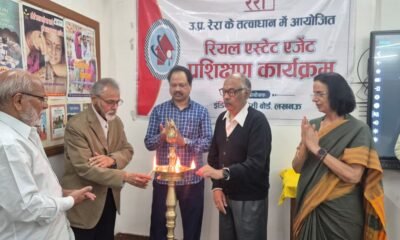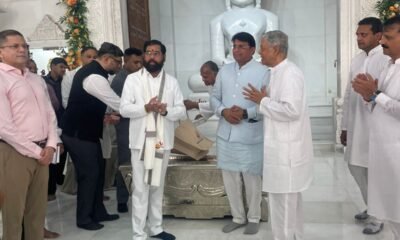News
LBS can change landscape: Land Resources Secretary
The proposed national land-use policy which seeks to regulate land-use efficiently would help in augmenting the use of waste and non-cultivable land and integrating them with location based services (LBS) and would make it easier to update and maintain digitised land records.
This was stated in New Delhi on Wednesday by Vandana Kumari Jena, Secretary, Department of Land Resources in the Ministry of Rural Development, at a conference on ‘Location Based Services 2015: Transforming Coordinates to Business’ organised by the Federation of Indian Chamber of Commerce and Industries (Ficci) in partnership with the Ministry of Earth Sciences.
Speaking about how LBS could transform India’s landscape, Jena said the Government has been trying to digitise land records of the country and so far 23 states have digitised their records and 24 states have a computerised registration for land. She added that only 10 states have integrated the two systems. Hence, to leverage the true potential of LBS, it was necessary that all the states have real-time information on land records.
On the occasion a FICCI-PwC report, ‘Location Based Services for Smart Cities’ was released by the dignitaries.
The report recommends that in order to mitigate challenges and ensure effective implementation of LBS along with smart city components across cities, there is a need to use LBS during assessment of city master planning; create a single agency for generating, collecting and utilising location and geospatial data of a city and frame a policy for data security and privacy.
Sudhir Krishna, former secretary in the Ministry of Urban Development, said the Bureau of Indian Standards has constituted a committee to formulate standards for smart cities. It would help in adopting a systematic approach towards building smart cities.
In his theme presentation on ‘Location Based Services for Smart Cities’ NSN Murty, Associate Director and Smart Cities Leader, PwC, said LBS would add a different dimension to the way people work, will become core to providing mass customised products and services, transform the way the Government provides services to citizens and leverage the mobile penetration and couple that with urban development.
In his presentation Rajesh Mathur, Chairman, Ficci Committee on Geospatial Technologies, said that GIS was a system of records, which organised and managed the geographic context of one’s assets and resources; powers location platform to deliver citizen-centric service; and provided decision support system to administrators.
Didar Singh, Secretary General of Ficci, said LBS has multi-sectoral applications. With the focus of the Government on smart cities, the usage of LBS-enabled application would increase manifold, he added.
-

 News4 weeks ago
News4 weeks agoMumbai’s Largest Trimandir Opens in Thane with Grand Three-Day Pran-Pratistha Ceremony
-

 News4 weeks ago
News4 weeks agoBudget 2026: Real Estate Sector Awaits Real Reform, Targeted Relaxations For Boost
-

 News4 weeks ago
News4 weeks agoUnion Budget 2026: Infrastructure-Led Growth Sets Stage for Real Estate Expansion Beyond Metros
-

 News4 weeks ago
News4 weeks agoNCDRC Directs District Magistrate to Take Over Control of Much Delayed Greater Noida Project
-

 News3 weeks ago
News3 weeks agoJewar Airport ‘Ready’, Likely to Be Inaugurated by PM Modi By Late Next Month
-

 News4 weeks ago
News4 weeks agoBudget 2026 Positions Tourism & Hospitality as Economic Multiplier, Not Support Sector
-

 News4 weeks ago
News4 weeks agoAIPL Acquires 43-Acre Gurugram Land for ₹1,000 Cr Through DRT
-

 News4 weeks ago
News4 weeks agoAshiana Care Homes & Epoch Elder Care Partner to Strengthen Assisted Living & Specialized Senior Care in India













































